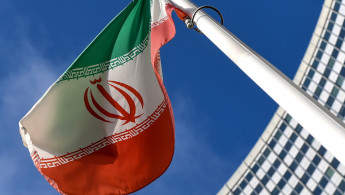Iran rejects Western censure motion submitted to IAEA
Iran said Wednesday it rejected a draft resolution by Western nations calling on it to cooperate fully with the International Atomic Energy Agency (IAEA).
"They wrote a resolution and brought documents which they themselves know are not true and which are rejected by the Islamic republic," the official IRNA news agency quoted Iran's atomic energy chief Mohamed Eslami as saying.
On Tuesday, diplomats said that the United States, Britain, France and Germany had submitted the resolution to the UN nuclear watchdog.
The resolution calling on Iran to cooperate fully with the IAEA comes after a report by the agency concluded there had been "no progress" in a long-standing probe into undeclared nuclear material in Iran.
The text must be discussed during a quarterly meeting of the IAEA's 35-nation Board of Governors, that starts on Wednesday.
The draft text seen by AFP underscored that it was "essential and urgent" for Iran to "act to fulfil its legal obligations".
An IAEA delegation was due to visit Iran this month, but Eslami said that "for the moment, no visit of the agency (IAEA) is on the agenda".
"We have responded to all of the IAEA's allegations and accusations and, if it had good intentions and a will to continue negotiations, they (Western countries) would not have presented a resolution" against Iran, he added.
It comes against the backdrop of stalled talks on reviving the 2015 nuclear deal.
The deal Iran reached with Britain, China, France, Germany, Russia and the United States gave it relief from sanctions in return for guarantees it could not develop an atomic weapon. Iran has always denied wanting a nuclear arsenal.
The deal collapsed after Washington's unilateral withdrawal in 2018 under then president Donald Trump.
Eslami said that "adopting a policy of maximum pressure and spreading accusations" against Iran is in "the nature of those who multiply the sanctions".





 Follow the Middle East's top stories in English at The New Arab on Google News
Follow the Middle East's top stories in English at The New Arab on Google News


